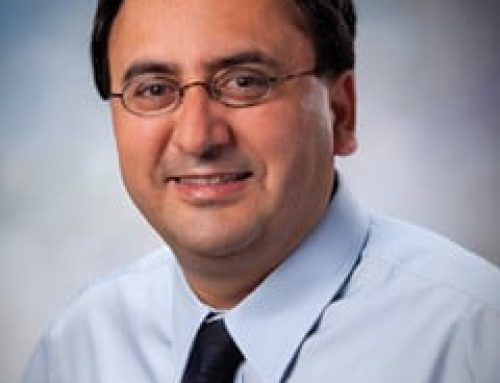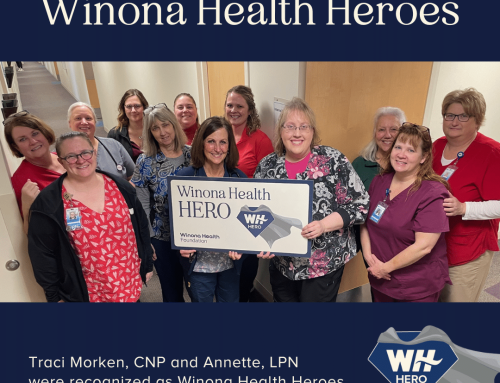
Heather Burton, MD
As you probably have heard, RSV is hitting early and hitting hard this year. Here at Winona Health, my fellow caregivers in Pediatrics and Family Medicine and I are fielding many questions from concerned parents and child care providers. We are always happy to be your resource!
We suspect many other people either have or will have questions throughout the coming months. I hope this information is a helpful start in clarifying what you want to know about RSV.
What is RSV?
RSV stands for respiratory syncytial virus. It is a common virus that affects the lungs and respiratory tract. For most healthy adults, it causes cold symptoms such as stuffy nose, sneezing, and coughing. In children, it most commonly causes stuffy/runny nose, coughing, fast/labored breathing, fussiness, less interest in eating/drinking, and occasionally fever.
Who does RSV affect most?
Anyone can get RSV, but it tends to be more severe in young babies and people who are over age 60. Most children are exposed to RSV by the time they are 2 years old. RSV is more serious in premature babies or babies with serious lung or heart issues who are at higher risk of breathing problems.
When does RSV occur?
RSV usually is more common during the winter months. Since the COVID pandemic, the RSV season has been slightly more unpredictable. This year we have seen more cases of RSV earlier in the year than normal. There are already high numbers of RSV in Minnesota and throughout the country.
Does my baby need to get tested for RSV?
Most of the time, children with symptoms do not need to get tested for RSV unless they are sick enough that they need to be in the hospital. There are many viruses that can cause similar symptoms and an RSV test does not change the treatment.
When should I see the doctor?
If you are worried that your child is having difficulty breathing, is difficult to wake up, or is getting dehydrated, you should bring them in to see their pediatrician. If you have a baby under 2 months old with a fever (temperature of 100.4 or higher), you should bring them in to be seen immediately.
How is RSV treated?
Unfortunately, there are not any medications that work directly against RSV. Since it is a virus, the immune system will eventually fight it off but it can take 5 to 7 days. The treatment for RSV is to help support your child’s breathing and make sure they stay hydrated while their body fights off the virus. The best things to do at home are to gently suction your child’s nose with nasal saline and offer lots of fluids for your child to drink. If they are over 2 months old, you can give them Tylenol to help with discomfort or fever.
What about COVID?
If your child is having symptoms of cough, congestion, fever, or other signs of illness, we recommend getting them tested for COVID. This is important so you know how long to quarantine and so you are aware in case they develop any long-term complications of COVID.
How can I prevent my child from getting sick this winter?
While there is not an RSV vaccine available at this time, there are other vaccines that can help protect your child from illness this year. The COVID and influenza vaccines are recommended for children 6 months and older. In addition, please wash your hands frequently, wear masks if people are sick, try to avoid having young babies around large crowds, and, if you are sick, stay home to help protect others – and to get the extra rest you need.
If you have concerns, please contact us. You are your child’s most important caregiver, and we, as caregivers at Winona Health, are here to support you and help you take care of your child.






